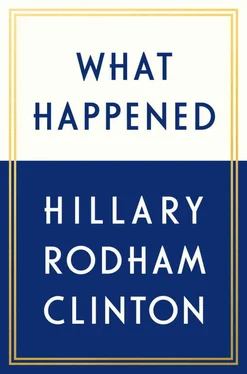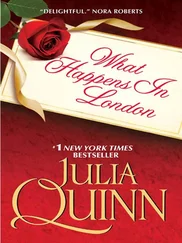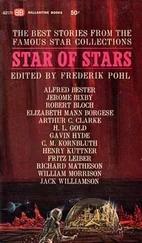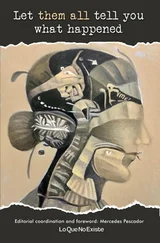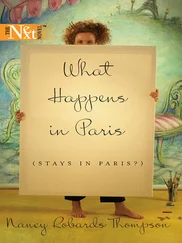And, practicing “radical empathy” means more than trying to reach across divides of race, class, and politics, and building bridges between communities. We have to fill the emotional and spiritual voids that have opened up within communities, within families, and within ourselves as individuals. That can be even more difficult, but it’s essential. There’s grace to be found in those relationships. Grace and meaning and that elusive sense that we’re all part of something bigger than ourselves.
I know this isn’t the language of politics, and some will roll their eyes again, just as they always have. But I believe as strongly as I ever have that this is what our country needs. It’s what we all need as human beings trying to make our way in changing times. And it’s the only way I see forward for myself. I can carry around my bitterness forever, or I can open my heart once more to love and kindness. That’s the path I choose.
Concern yourself not with what you tried and failed in, but with what is still possible to do.
—Pope John XXIII
One day a few months after the election, I called some friends and suggested we make a pilgrimage to Hyde Park, New York. I was feeling restless and needed an emotional boost. I thought it might help to visit Val-Kill, Eleanor Roosevelt’s cottage, which is one of my favorite historical sites. That’s where Eleanor went when she wanted to think, write, entertain, and plan for the future. Maybe I’d be inspired. If nothing else, it would be a nice day out with friends.
It was a cold but clear March day when we arrived. The cottage, simple and unpretentious, was just as I remembered: the rustic “sleeping porch” with its narrow single bed, some of Eleanor’s favorite books, her radio, the portrait of her husband she kept over the mantel. A historian who joined us for the tour was kind enough to share some of Eleanor’s letters. Reading the mix of adoring fan mail and nasty, cutting diatribes was a reminder of the love-hate whiplash that women who challenge society’s expectations and live their lives in the public eye often receive.
I’d been thinking about Eleanor a lot lately. She put up with so much vitriol, and she did it with grace and strength. People criticized her voice and appearance, the money she made speaking and writing, and her advocacy for women’s rights, civil rights, and human rights. An overzealous director of the FBI put together a three-thousand-page file on her. One vituperative national columnist called her “impudent, presumptuous, and conspiratorial,” and said that “her withdrawal from public life at this time would be a fine public service.” Sound familiar?
There were plenty of people hoping that I, too, would just disappear. But here I am. As Bill likes to say, at this point in our lives, we have more yesterdays than tomorrows. There is no way I am going to waste the time I have. I know there is more good to do, more people to help, and a whole lot of unfinished business.
I can only hope to come close to the example Eleanor had set. After her husband died and she left the White House, in 1945, she grew even more outspoken. She became a stateswoman on the world stage, leading the global movement to write and adopt the Universal Declaration of Human Rights. At the same time, she was an active player in national and local Democratic politics, fighting for the soul of her party and her country in a postwar era marked by fear and demagoguery. When she died in 1962, the New York Times obituary described how she outlasted ridicule and bitter resentment to become “the object of almost universal respect.”
Her friends and supporters clamored for Eleanor to run for Senate, Governor, even President, but she decided instead to pour her energy into helping elect others. Her favorite was Adlai Stevenson, the Governor of Illinois who ran for President unsuccessfully in 1952 and 1956. His losses hurt. “Though one may doubt the wisdom of the people,” Eleanor wrote in a newspaper column after the second defeat to Dwight Eisenhower, “it is always best to trust that in time the wisdom of the majority of the people will be greater and more dependable and those who are in the minority must accept their defeat with grace.” She was right, of course. But I would have loved to have heard her response if Adlai had ended up winning the popular vote but losing the Electoral College. She would have found just the right way to capture the absurdity of it all.
As we walked through the cottage, I tried to picture Eleanor in her chair writing, or holding court at the table, surrounded by friends and comrades in arms. She was, until the end, her own person, despite all the demands and constraints the world placed on her—true to herself and her values. That’s a surprisingly rare and special thing.
Back in 1946, when Eleanor was charting her post-FDR course, she said something that resonates with me now as it never has before. “During a long life, I have always done what, for one reason or another, was the thing which was incumbent upon me to do without any consideration as to whether I wished to do it or not,” she wrote. “That no longer seems to be a necessity, and for my few remaining years, I hope to be free!”
That’s the future I want, too. As Eleanor showed, it’s there for the taking.
=====
“What do we do now?” That’s the question a lot of Democrats asked me in the first months after Trump’s victory and inauguration. Many of my campaign staff, donors, and volunteers were eager—desperate, even—to find new ways to keep up the fight for the progressive values we all shared. People came up to me in restaurants, airports, and theaters, asking for direction. They wanted to help but didn’t know the best way to do it. Should they be giving everything they could to the American Civil Liberties Union and others trying to stop Trump’s travel ban in court? Or throw themselves into the handful of special elections that would fill open House seats in 2017? What about diving into new efforts to fight gerrymandering and voter suppression? Should they run for office themselves? There were so many causes, groups, and candidates looking for support, it was hard to know where to begin. Frankly, I was asking the same questions.
At first, I had intended to keep relatively quiet. Former Presidents and former nominees often try to keep a respectful distance from the front lines of politics, at least for a while. I always admired how both George H. W. Bush and George W. Bush avoided criticizing Bill and Barack, and how Bill ended up working with George H. W. on tsunami relief in Asia and Katrina recovery on the Gulf Coast. And with George W. in Haiti after the earthquake in 2011. That’s how it’s supposed to work. But these weren’t ordinary times, and Trump wasn’t an ordinary President.
The Russia scandal was getting more disturbing by the day. Polls showed that respect for the United States around the world was collapsing. The understaffed, overpoliticized Trump administration was consumed by crises of their own making, but I shuddered to think about how they would handle a real emergency, whether it was a clash with nuclear-armed North Korea, a major terrorist attack, a natural disaster like Hurricane Katrina, or a cyberattack on a nuclear power plant. At home, instead of investing in infrastructure and jobs, the new administration was busy rolling back protections for civil rights, worker’s rights, and clean air and water. I watched with horror as Republicans in Congress moved methodically to dismantle the Affordable Care Act, which would strip tens of millions of Americans of their health care. Soon it became clear their target was much bigger than Obamacare. They wanted to strike a major blow against Medicaid, too. I had no doubt that Medicare and Social Security would soon be on the chopping block as well. It was a full-on ideological assault on the legacy of the Great Society and the New Deal. They don’t just want to erase Barack Obama from the history books—they’re coming for LBJ and FDR, too. Hardworking families I’d met across the country were going to pay the price. They needed help getting ahead but instead they were getting stabbed in the back. Watching all this unfold in the early months of the Trump presidency, I knew there was no way I could sit quietly on the sidelines.
Читать дальше
